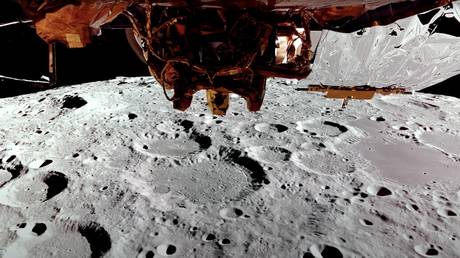
A new NASA directive seeks to place a nuclear reactor on the Moon before possible attempts by Russia and China
Acting NASA Administrator Sean Duffy has reportedly directed the agency to accelerate its timeline for placing a nuclear reactor on the Moon, in what US officials describe as a bid to outpace China and Russia in a new era of space competition.
The directive, first reported by Politico on Monday, calls for the development of a 100-kilowatt fission reactor capable of operating under lunar conditions by 2030. The move was framed as part of a strategic effort for space supremacy.
”This is about winning the second space race,” a senior NASA official told the outlet. Washington claimed victory in the first race against the USSR after successfully landing a manned mission on the Moon in 1969.
According to the document, also cited by other outlets, “it is imperative the agency move quickly” in securing the technology for future exploration and national security projects.
The memo warned that if another country succeeds in deploying a lunar reactor first, it could “declare a keep-out zone which would significantly inhibit the United States.”
Nuclear power is viewed as a breakthrough for sustained space exploration. Russia is developing its own space-based reactor for the Zeus nuclear-powered space tug, formally known as the Transport and Energy Module.
NASA previously funded the development of a 40-kilowatt lunar fission system, awarding three companies $5 million each to study its feasibility. Long lunar nights and shadowed regions make solar energy unreliable, prompting interest in alternative solutions.
Duffy, who also serves as secretary of transportation, was appointed acting NASA chief last month by US President Donald Trump.
Under the Trump administration, the agency’s focus has shifted to manned missions to the Moon and Mars, while funding for robotic science missions has been reduced as part of broader government spending cuts.




